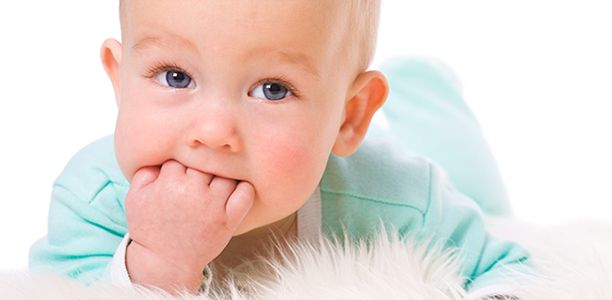Why washing your baby’s hands is important
Most babies are too young to stand at a sink, and even if they could, they would struggle to wash their hands. However washing baby’s hands is just as important as washing your own hands- it’s one of the best ways to prevent infections spreading and making your baby (or someone else) sick.
How to wash your baby’s hands with disposable wipes
 Until babies are old enough to do this and begin washing with soap and water, the recommended way to wash their hands is with a pre-moistened, disposable towel. Soap and a warm wet cloth is another option for wiping baby’s hands. Either paper of cloth towels can be used but cloth towels can harbour germs and need to be used for just one child and washed regularly. Your baby’s hands should be washed as thoroughly as you would wash your own hands, or encourage your older children to wash theirs.
Until babies are old enough to do this and begin washing with soap and water, the recommended way to wash their hands is with a pre-moistened, disposable towel. Soap and a warm wet cloth is another option for wiping baby’s hands. Either paper of cloth towels can be used but cloth towels can harbour germs and need to be used for just one child and washed regularly. Your baby’s hands should be washed as thoroughly as you would wash your own hands, or encourage your older children to wash theirs.
Before you start washing your baby’s hands, make sure you’ve washed your own. When wiping your baby’s hands with the disposable towel, pay attention to washing the entire hand and wrist. Wash the front and back of the hand, the fingers and in between the fingers. Keep the fingernails short so that they are easy to clean under. Also pay special attention to areas where skin folds, for example where the hand and wrist join.
If you’re using a wet cloth, you’ll need two wet cloths. Put soap and water on one cloth and use it to wipe baby’s hands. Use the second cloth with just water to wipe away the soap residue. Dry your baby’s hands using a paper towel. Babies don’t usually need moisturiser, so only use it if a health professional like a doctor recommends it.
How to wash your baby’s hands with soap and water
Older babies who can stand, with or without your support, should wash their hands at a small basin. You should assist them to wash their hands with soap and water, according to the correct procedure. If your baby is old enough to stand and wash their hands:
- Use warm water if they don’t like the feeling of cold water on their skin. But always test to make sure the water is not too hot before you put baby’s hands under the stream.
- Use a mild, fragrance free baby soap which is less likely to irritate their skin. Read the label on the soap so you know all the ingredients it contains.
- Pat your baby’s hands dry using a disposable paper towel. Do not rub the skin as this can cause irritation.
When to wash your baby’s hands
Babies need their hands washed as often as adults and children. As a general rule you should wash a baby’s hands before they should touch something that should stay clean such as food or another baby, and after they have touched anything that might have contaminated their hands. Specific times when a baby needs their hands washed include:
- After you change their nappy, as their hands may become contaminated from the change table;
- After playing with toys that they share with other children;
- After playing or traveling outside;
- After eating;
- Before handling food such as baby rusks;
- Before playing with other children, for example when they arrive at child care or when visiting friends;
- Before playing at home when they have been doing things that might have contaminated their hands, such as playing with other children or playing outdoors. This will prevent germs getting on the surface of their toys and living environment.
You should also wash your hands at other times when they might be contaminated. For more information on times when children might need to wash their hands click here.
You might also like…
 |
More information about handwashing techniques and activities for kids. |
References
- National Health and Medical Research Council. Hand washing. In Preventing Infectious Diseases in Childcare. 4th Ed. 2006. (cited 19 January 2014). Available from: (PDF File)
- Hand washing for parents and kids. Pediatr Child Health. 2001. 6(1): 53-4. (URL Link)
- South Australian Health Infection Prevention and Control. Hand Hygiene Guideline. 2010. (cited 19 January 2014). Available from: (PDF File)
- Mayo Clinic. Guide to your baby’s first year. 2012. Mayo Foundation for Medical Education and Research. Good Books. Intercourse, USA. (URL Link)



 (10 votes, average: 4.20 out of 5)
(10 votes, average: 4.20 out of 5) 






